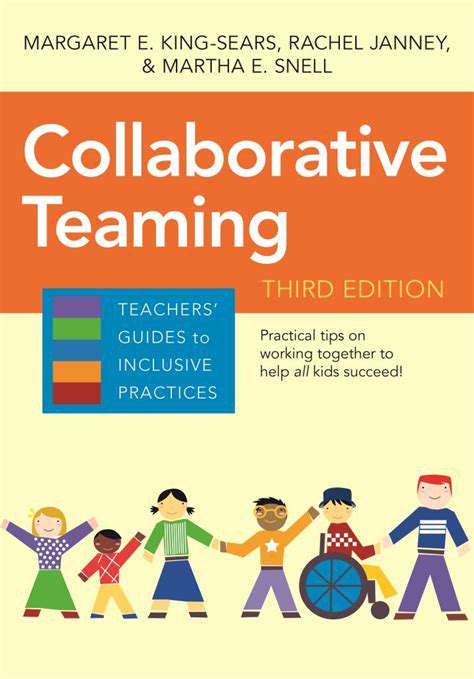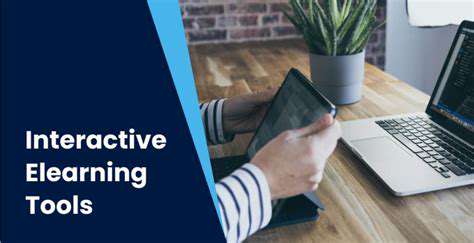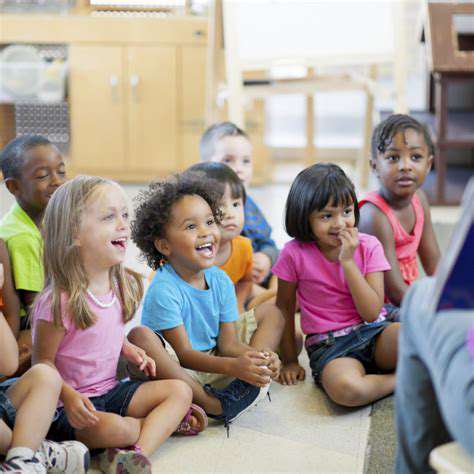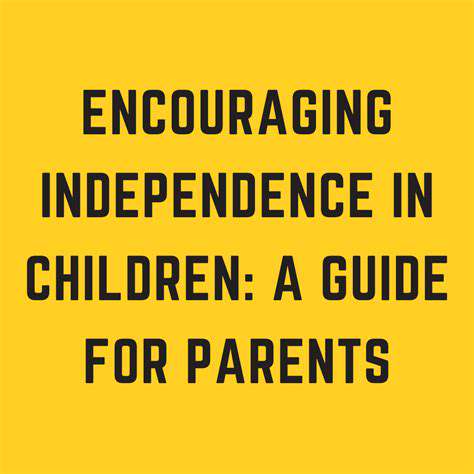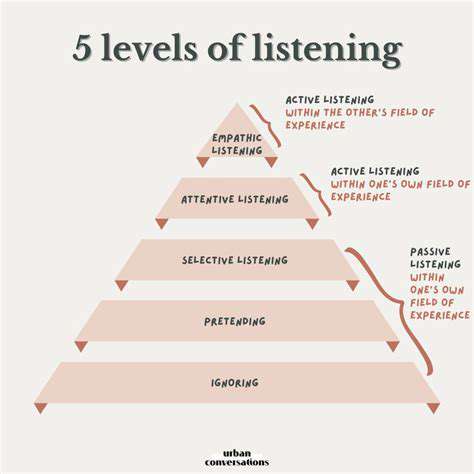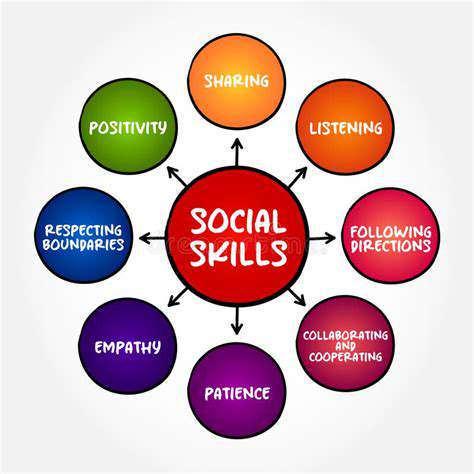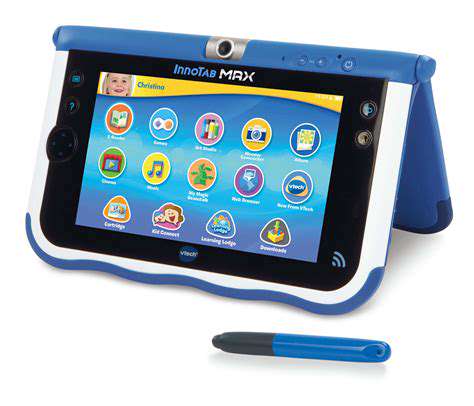Cognitive Development Through the Stages of Childhood: A Comprehensive Guide
The Stages of Cognitive Development According to Piaget

Introduction to Piaget's Theory
Jean Piaget, a Swiss developmental psychologist, is best known for his pioneering work in child development. His theory of cognitive development has significantly influenced how we understand how children think and learn. By observing children in natural settings, Piaget identified key stages that illustrate the progression of cognitive abilities.
Piaget's theory is commonly divided into four primary stages: sensorimotor, preoperational, concrete operational, and formal operational. Each stage represents a fundamental shift in children's understanding of the world around them. The intricacies of these stages reveal how children are not just passive recipients of knowledge but active participants in their learning processes.
Understanding Piaget's stages of cognitive development offers essential insights into children's cognitive growth, helping educators and parents craft more effective strategies that nurture learning. This comprehensive approach can be pivotal in supporting children's mental and emotional development during crucial early years.
Sensorimotor Stage: Exploring the World
The sensorimotor stage spans from birth to about two years of age. During this period, infants learn about the world primarily through their senses and motor actions. As they interact with their environment, they begin to develop critical cognitive skills such as object permanence, which is the understanding that objects continue to exist even when they are not visible.
Key activities in this stage involve exploration and manipulation of objects, which facilitate a sense of agency and autonomy. For example, babies learn cause and effect by dropping things to observe what happens. This stage sets the foundation for future cognitive development, as each sensory experience builds on previous knowledge.
It's crucial to recognize that nurturing and stimulating environments can significantly enhance cognitive skills during the sensorimotor stage. Parents and caregivers can contribute to developmental milestones by providing varied sensory experiences and encouraging exploration through play.
Preoperational Stage: Imagination and Symbolic Thinking
Ages two to seven characterize the preoperational stage, where children begin to engage in symbolic play and develop language skills. During this period, kids use symbols to represent objects, ideas, and feelings, leading to advanced imaginative capabilities. While their thinking is not yet logical, the creativity that flourishes during this time lays essential groundwork for later reasoning skills.
Characteristics of the preoperational stage include egocentrism, where children struggle to see perspectives other than their own, and animism, where they attribute human feelings and intentions to inanimate objects. Understanding these characteristics helps caregivers to tailor their communication and learning approaches, fostering empathy and perspective-taking in children.
Despite the limitations in their logical reasoning, children display remarkable abilities in storytelling, role-playing, and artistic expression during this stage. Engaging children in creative activities enhances their cognitive development, encouraging them to explore their thoughts and feelings while enhancing their social skills.
Concrete Operational Stage: Logical Thinking and Classification
Transitioning from ages seven to eleven, children enter the concrete operational stage, during which they develop the ability to think logically about concrete events. They begin to understand the concept of conservation—the understanding that quantity remains the same despite changes in shape or appearance. This newfound ability to perform mental operations marks a significant milestone in cognitive maturation.
During this stage, children become adept at classifying objects, understanding sequences, and comprehending the relationships among various categories. Their cognitive processes become more organized, enabling them to tackle problems that require logical reasoning and analytical skills.
However, it is essential to acknowledge that logical thinking during this stage is still tied to concrete information rather than abstract concepts. Educators can support cognitive growth by introducing age-appropriate problem-solving tasks and hands-on learning experiences that promote critical thinking while aligning with children's concrete understanding.
Formal Operational Stage: Abstract Thinking and Hypothetical Reasoning
The formal operational stage, typically emerging around the age of twelve, marks the culmination of Piaget's stages of cognitive development. In this period, adolescents develop the ability to think abstractly, logically, and systematically. They can engage in hypothetical reasoning, considering possibilities beyond their immediate experience. This stage is crucial because it equips individuals with the tools necessary for complex problem-solving and advanced critical thinking.
In this stage, teenagers can formulate and test hypotheses, think scientifically, and reason through sophisticated moral and abstract dilemmas. Their cognitive skills are not just expanded but refined, allowing them to engage in discussions that require a deep understanding of abstract concepts and nuances.
As adolescents transition into adulthood, supporting their development in this stage involves encouraging independent thought, ethical reasoning, and the exploration of diverse perspectives. Engaging them in debates, philosophical discussions, and complex projects can stimulate their cognitive abilities, providing them with the necessary framework to navigate adult life successfully.
Vygotsky's Sociocultural Theory and its Influence
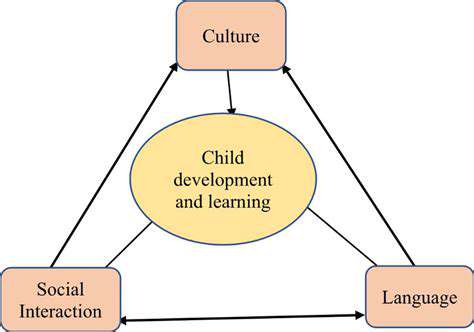
Understanding Vygotsky's Sociocultural Theory
Vygotsky's sociocultural theory emphasizes the critical role that social interactions play in cognitive development. According to Vygotsky, learning is inherently a social process, as it occurs within a cultural context. This perspective shifts the focus from the individual learner to the community and social environment that shape learning experiences. Children learn best when they engage in collaborative activities that promote dialogue and shared understanding. This theory underscores the idea that cognitive growth is influenced not just by individual exploration but also by cultural tools and social collaboration.
One of the key components of Vygotsky's theory is the concept of the Zone of Proximal Development (ZPD). The ZPD refers to the difference between what a learner can do without guidance and what they can achieve with guidance from a more knowledgeable other. This framework suggests that optimal learning occurs when children are challenged just beyond their current abilities. In essence, effective teaching strategies aim to stretch a child's understanding while providing necessary support. This scaffolding approach encourages educators and caregivers to facilitate learning experiences that are neither too easy nor too difficult.
Vygotsky's theory also highlights the importance of language in cognitive development. He believed that language is a vital cultural tool that shapes thinking and allows for higher-order cognitive processes. Through interactions with others, children internalize language and use it to organize their thoughts and understanding. As they grow, they become capable of independent thought, reflecting on their learning experiences through private speech. This transformative use of language demonstrates how communication and social context contribute to cognitive advancement.
The Role of Cultural Tools in Learning
Cultural tools, as defined by Vygotsky, are the symbolic and physical instruments a society uses to mediate human activity and thought. Examples of these tools include language, mathematics, art, and technology. Each culture offers specific tools that influence cognitive development and learning processes. The availability and use of these tools can significantly impact a child's intellectual growth and learning trajectory. For instance, the way numbers and mathematical concepts are taught can vary dramatically between cultures, reshaping how children understand and engage with mathematics.
The integration of cultural tools into the learning environment fosters a more holistic approach to education. By incorporating various cultural artifacts, educators can help children make connections between new knowledge and their existing cultural understanding. This approach allows for an enriched learning experience, bridging the gap between knowledge and real-world application. When children engage with cultural tools, they are more likely to develop critical thinking and problem-solving skills that extend beyond the classroom.
Moreover, Vygotsky's emphasis on cultural tools encourages educators to consider the diversity of children's backgrounds. This awareness promotes inclusivity and ensures that the learning environment is responsive to the needs of all students. By valuing diverse perspectives and experiences, educators can create a rich tapestry of learning opportunities that reflect the cultural contexts of their students. Such practices not only aid cognitive development but also foster a sense of belonging and identity among learners.
Implications of Sociocultural Theory for Education
The implications of Vygotsky's sociocultural theory extend far beyond theoretical understanding; they reshape educational practices fundamentally. For instance, collaborative learning strategies, such as group projects and peer teaching, embrace the concepts of social interaction and guided learning. These strategies allow students to learn from one another, leveraging the diverse perspectives that each individual brings to the group. This practice not only enhances cognitive development but also builds essential social skills that are vital for lifelong learning.
Additionally, educators are encouraged to adopt a more flexible teaching style that accommodates the varying levels of students' ZPD. By providing differentiated instruction tailored to individual needs, teachers can effectively support all learners, ensuring that each student has the opportunity to thrive. Such an approach acknowledges the unique cognitive challenges faced by each child, promoting a respectful and supportive learning environment. This framework empowers educators to serve as facilitators of knowledge rather than mere providers of information.
Furthermore, the integration of cultural context into curriculum development is a significant output of Vygotsky's ideas. Curriculums that are reflective of students' cultural backgrounds become more relevant and meaningful, enhancing student engagement. Teachers are tasked with finding ways to connect the content with the students' lived experiences, thus providing richer learning contexts. This relevance increases motivation and can lead to deeper understanding and retention of knowledge.
Factors Influencing Cognitive Development
Genetic Influences on Cognitive Development
Genetics play a foundational role in shaping an individual's cognitive abilities from an early age. Each child inherits a unique set of genetic materials that contribute to their brain development and cognitive processing. Genetic predispositions can influence not only intelligence but also learning capabilities and problem-solving skills, establishing a baseline for cognitive growth throughout childhood.
Research indicates that certain genes are linked to specific cognitive tasks, such as memory retention and verbal reasoning. These genetic markers can sometimes help predict a child's potential, but it's essential to recognize that they work in conjunction with environmental factors. Thus, while genetic properties are crucial, they do not operate in isolation.
Moreover, studies involving twins provide insightful data highlighting heritability in cognitive development. Identical twins often display striking similarities in IQ, suggesting that genetics significantly dictates potential cognitive outcomes. However, environmental input can modulate these genetic influences, emphasizing the necessity of a nurturing setting.
Parents often wonder how much of their child’s intellect comes from them. While the genetic heritage certainly plays a role, it is the engagement of children in stimulating activities that can enhance their inherent potential. Therefore, understanding the interplay between nature and nurture can empower parents to provide enriching experiences for their children.
In conclusion, the biological factors rooted in genetics present a compelling topic of study in cognitive development. As research continues to advance, the understanding of how these genetic influences interface with environmental factors remains a critical area of exploration, helping to unravel the complexities of intellectual growth in children.
Environmental Factors Affecting Cognitive Growth
The environment in which a child is raised significantly impacts cognitive development. Various elements such as socioeconomic status, educational opportunities, and the presence of supportive relationships all contribute to a child's ability to learn and develop cognitively. Children from enriched environments often display advanced problem-solving skills and greater emotional intelligence compared to those from less stimulating backgrounds.
A home filled with books, educational toys, and stimulating activities provides children with diverse opportunities for exploration. These resources aid in developing language skills, critical thinking, and creativity. Furthermore, regular interactions with caregivers who encourage learning can foster a sense of curiosity and a love for knowledge that supports cognitive evolution.
On the other hand, adverse conditions such as poverty, neglect, and malnutrition can hinder cognitive development, leading to delays in skills like language acquisition and social interaction. The stress of such environments can also adversely affect a child’s emotional regulation and overall cognitive capacities, illustrating the vital role a nurturing environment plays.
Early childhood education programs, especially those that focus on cognitive skills through play and interaction, can greatly enhance cognitive growth. These programs provide structured yet engaging learning opportunities, promoting social skills while cultivating intellectual advancements that primary education alone may not address.
Ultimately, the environment serves as a catalyst for cognitive development, highlighting the necessity for investing in the upbringing of children. By providing holistic, supportive, and enriching environments, caregivers and communities can significantly enhance children's cognitive outcomes, enabling them to thrive in their learning journeys.
The Role of Nutrition in Cognitive Development
Nutrition undoubtedly plays a vital role during childhood, influencing cognitive development at various stages. A balanced diet rich in essential nutrients can significantly enhance brain functions like memory, attention, and higher-level thinking capabilities. Proper nutrition during critical developmental windows is crucial, as the brain undergoes rapid growth during infancy and early childhood.
Specific nutrients such as omega-3 fatty acids, found in fish, and antioxidants from fruits and vegetables have been shown to support brain health. This means that children who have access to nutritious foods tend to have improved cognitive function compared to those with diets lacking in these elements. These nutrients aid in the formation of neural connections necessary for effective learning and memory.
On the contrary, poor nutrition can lead to cognitive deficits. Diets high in sugars and processed foods can negatively impact attention spans and lead to behavioral issues, further hindering learning opportunities. Malnutrition during the formative years is linked to diminished educational outcomes and can have long-term deleterious effects on cognitive abilities.
It’s essential for parents and caregivers to prioritize a well-balanced diet to ensure children receive all the necessary nutrients required for optimal cognitive function. Simple actions, such as preparing home-cooked meals packed with diverse ingredients, can help combat the risks associated with poor dietary choices.
In summary, safeguarding children’s nutritional needs is paramount for fostering robust cognitive development. Ensuring a mix of vitamins, minerals, and essential fatty acids can substantially boost cognitive functions, laying a strong foundation for lifelong learning and mental acuity.
Social Interactions and Cognitive Development
Social interactions are critical in shaping a child’s cognitive development through various stages of growth. From an early age, children learn to navigate the world through relationships, and these interactions significantly influence their cognitive skills. Engaging with peers and adults provides essential opportunities for language development, emotional intelligence, and cooperative problem-solving.
Playdates, group activities, and interactions in educational settings are formative experiences that enhance cognitive abilities. Through social play, children are introduced to concepts of sharing, empathy, and conflict resolution, all of which are essential for cognitive growth. These experiences promote not only cognitive skills but also build self-esteem and encourage social competence.
Interactions with adults also play a crucial role in cognitive development. Parents, caregivers, and educators who engage children in discussions, ask open-ended questions, and encourage exploration foster higher-order thinking skills. These techniques help children articulate their thoughts and feelings while enhancing their understanding of the world, boosting both cognitive and verbal skills.
Conversely, limited social interactions can hinder cognitive development. Children who lack opportunities for regular social engagement may face challenges in language acquisition, problem-solving abilities, and emotional regulation. The inability to engage with others can result in deficits that affect learning negatively and hinder social skills necessary for future success.
The Influence of Technology on Cognitive Development
In our rapidly evolving digital age, technology has increasingly become a part of childhood experiences, significantly influencing cognitive development. Children interact with digital platforms from a very young age, making it crucial to understand both the potential benefits and drawbacks of technology use. Age-appropriate exposure to educational apps and interactive games can enhance learning by providing engaging experiences.
Research suggests that certain technology-based learning tools can support cognitive skills like memory retention, logical reasoning, and creativity. When used wisely, technology can serve as an effective medium for reinforcing academic content, encouraging exploration and creativity through digital storytelling and interactive simulations.
However, excessive screen time can lead to negative cognitive outcomes. Overexposure to screens, particularly passive consumption of content, may contribute to attention deficits, reduced critical thinking skills, and social isolation. Children need a balanced approach, incorporating technology without letting it dominate their free time or hinder face-to-face interactions.
Furthermore, ensuring that the digital content consumed is age-appropriate and educational is vital. Parents and educators play crucial roles in guiding children through the digital landscape, emphasizing the importance of quality over quantity. Encouraging meaningful discussions about the content can further enhance critical thinking and cognitive skills.
In summary, technology presents both opportunities and challenges in cognitive development. Navigating this digital terrain with guidance can empower children to use technology constructively, fostering skills that will serve them well in academic and future professional environments. By adopting a balanced approach, caregivers can harness the advantages of technology to advance cognitive outcomes for their children.
Implications for Education and Parenting
Understanding Cognitive Development in Early Childhood
The earliest years of a child's life are marked by rapid cognitive development, a process influenced by genetic, environmental, and social factors. During these formative years, children engage in activities that promote critical thinking and problem-solving skills. Parents and educators should provide stimulating environments rich in sensory experiences to foster this intellectual growth. Play, exploration, and hands-on activities are essential, allowing children to learn through experience, observation, and interaction.
Language acquisition is a key component of early cognitive development. Children begin to comprehend and produce language around the age of one, which opens up new paths for learning and understanding the world around them. Parents can support this development by engaging in conversations, reading aloud, and encouraging verbal expression. This not only enhances vocabulary but also improves comprehension skills, setting a strong foundation for later academic success.
Moreover, social interactions in early childhood play a significant role in cognitive growth. Through playdates, group activities, and family interactions, children learn important social skills such as cooperation, sharing, and empathy. These experiences also help them develop emotional intelligence, which is crucial for effective communication and relationship building throughout their lives. Parents and educators should encourage participation in group activities that promote social engagement and collaboration.
Recognizing the importance of early experiences, both parents and educators should be proactive in creating a supportive environment. This includes identifying and addressing any developmental delays or challenges early on. By being attentive to a child's needs and providing appropriate interventions, caregivers can significantly enhance cognitive outcomes, helping children reach their full potential during these critical years.
Navigating Middle Childhood Cognitive Changes
Middle childhood, roughly ages 6 to 12, is a pivotal phase for cognitive development characterized by marked changes in thinking processes. During this stage, children begin to develop logical reasoning skills and start to think more abstractly. They transition from concrete operational thought, as defined by Piaget, to higher-level cognitive functions that foster problem-solving and critical thinking abilities. Parents and educators should encourage this growth by providing challenging and thought-provoking activities.
School plays a central role in shaping cognitive development during middle childhood. As children progress through grades, they encounter more complex subjects, which require the application of critical thinking skills and increased independence. Educational institutions should align their curricula with developmental milestones, allowing children to engage in projects and collaborative work that stimulate their cognitive growth. Parents can support this by advocating for their child's educational needs and ensuring they participate in school-related activities.
Another important aspect of cognitive development in this period is the enhancement of metacognitive skills. Children begin to reflect on their own thinking processes, becoming more aware of how they learn. Encouraging students to set goals, monitor their progress, and evaluate their strategies can significantly improve their learning outcomes. Parents can foster these habits by discussing learning strategies and helping children understand their strengths and areas for improvement.
Additionally, the influence of peer relationships becomes increasingly significant during middle childhood. Children learn vital interpersonal skills through interactions with their peers, which can inform their cognitive skills as well. Understanding social dynamics and navigating friendships contribute to their emotional and cognitive development. It is essential for parents and educators to guide children in building positive relationships and to facilitate experiences that promote teamwork and collaboration.
Impacts of Adolescence on Cognitive Skills
As children move into adolescence, cognitive development enters a new stage marked by profound changes. During this period, teens transition to formal operational thought, which allows for more sophisticated reasoning and abstract thinking. This shift enables adolescents to consider hypothetical situations, think critically about complex issues, and engage in moral reasoning. Parents should encourage their teenagers to express their ideas and engage in discussions to further refine these skills.
Adolescents also begin to develop a clearer sense of identity and self-concept, which can significantly influence their cognitive processes. They become more introspective and start exploring their beliefs, values, and aspirations. Encouraging self-reflection through journaling or open discussions can help adolescents navigate this complex phase. Parents and educators should provide a safe space for teens to explore their identity without fear of judgment.
Additionally, the role of peer influence becomes crucial during adolescence, impacting cognitive development both positively and negatively. While relationships with peers can foster critical thinking and expose adolescents to diverse perspectives, they may also lead to detrimental habits or risky behaviors. It’s vital for parents to maintain open lines of communication with their teens, guiding them in making informed decisions and understanding the implications of their choices.
A supportive environment involving both parents and educators can greatly enhance cognitive development during adolescence. Educational institutions should focus on fostering critical thinking skills, self-regulation, and a sense of responsibility by offering opportunities for independent learning and decision-making. When caregivers collaborate and communicate effectively, they create a comprehensive support system that nurtures cognitive growth during this challenging yet transformative stage.
Strategies for Effective Parenting and Education
To effectively support cognitive development across all stages of childhood, parents and educators can adopt several evidence-based strategies. Establishing routines and consistency provides children with a sense of security, enabling them to focus on learning and exploration. A structured environment encourages children to develop self-discipline and time management skills, which are essential for academic success and personal growth.
Moreover, engaging children in discussions about their learning fosters a deeper understanding of concepts and encourages them to think critically. Parents and educators should ask open-ended questions and stimulate dialogue, allowing children to explore their thoughts and reasoning. This approach not only enhances cognitive engagement but also builds confidence in their analytical abilities.
Incorporating play into learning is another effective strategy. Through games and playful activities, children can learn important cognitive skills while having fun. This may include educational board games that challenge problem-solving abilities or interactive activities that promote teamwork. By blending learning with play, caregivers can enhance motivation and make academic concepts more relatable.
Finally, working collaboratively between home and school is essential for cognitive development. Open communication between parents and teachers ensures a holistic approach to a child's education. Regular meetings, updates, and shared goals can create a unified strategy that addresses each child’s unique needs, thus maximizing their learning potential and developmental growth.
